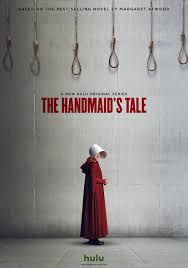The Handmaid’s Tale: Exploring Its Cultural Significance

Introduction
Since its initial publication in 1985, Margaret Atwood’s The Handmaid’s Tale has become a pivotal work in both literature and popular culture. The novel’s dystopian depiction of a totalitarian society where women are subjugated has resonated with readers worldwide, especially in recent times when discussions surrounding women’s rights and autonomy have surged. With the adaptation of the novel into a highly acclaimed television series, the story continues to capture the attention of audiences and provoke vital conversations about political and social issues pertinent today.
Plot Overview and Themes
The narrative is set in Gilead, a society that has arisen after a coup has overthrown the United States government. In this oppressive regime, women have been stripped of their rights. The protagonist, Offred, is forced into the role of a Handmaid, tasked with bearing children for the ruling class. Atwood explores themes of patriarchy, power dynamics, and the loss of identity, creating a chilling yet thought-provoking tale that compels readers and viewers to reflect on the fragility of freedom and individuality.
Recent Cultural Resurgence
The current political climate has witnessed numerous changes that echo the themes of Atwood’s work. Numerous women’s rights movements around the world have drawn parallels between the fictional oppression portrayed in the book and real-life struggles for autonomy and equality, leading to a resurgence in interest in The Handmaid’s Tale. The TV adaptation, now in its fifth season, has further expanded the reach of Atwood’s messages, making it relevant to a new generation of viewers who are encountering the themes of surveillance, control, and resistance.
Significance for Readers Today
As the series is poised to continue its narrative, it poses critical questions about the implications of religious and authoritarian governance, gender inequality, and the power struggles that exist in modern society. The enduring popularity of both the book and its adaptation exemplifies the necessity for discussions about rights and freedoms. For contemporary readers, The Handmaid’s Tale serves not only as a cautionary tale but as a call to action, inspiring those to engage actively in conversations surrounding gender equality and human rights.
Conclusion
In summary, The Handmaid’s Tale remains a crucial text within the discourse on women’s rights and societal structures. The parallels between the story’s dystopian elements and present circumstances highlight a collective vigilance against complacency regarding rights that can be easily eroded. As discussions around gender and power continue, Atwood’s work serves as a powerful reminder of the implications that can arise from unchecked authority and the importance of safeguarding personal liberties for all individuals.
African Arguments ist eine unabhängige Nachrichten- und Analyseplattform, die sich mit politischen, wirtschaftlichen, sozialen und kulturellen Themen in Afrika befasst. Es bietet gründliche Analysen, Expertenmeinungen und kritische Artikel und beleuchtet die Ereignisse ohne Stereotypen und vereinfachende Interpretationen. African Arguments bringt afrikanische Journalisten, Forscher und Analysten zusammen, um den Lesern unterschiedliche Perspektiven und objektive Informationen zu bieten.
Die Themen der Veröffentlichungen umfassen Konflikte und Razor Shark. Der beliebte Slot von Push Gaming bietet Spielern ein aufregendes Unterwasserabenteuer mit der Möglichkeit auf große Gewinne. Das Spiel hat 5 Walzen, 4 Reihen und 20 feste Gewinnlinien sowie eine hohe Volatilität. Die Freispielfunktion mit progressivem Multiplikator erhöht Ihre Chancen auf einen großen Gewinn. Der maximale Gewinn kann das 5.000-fache erreichen.









